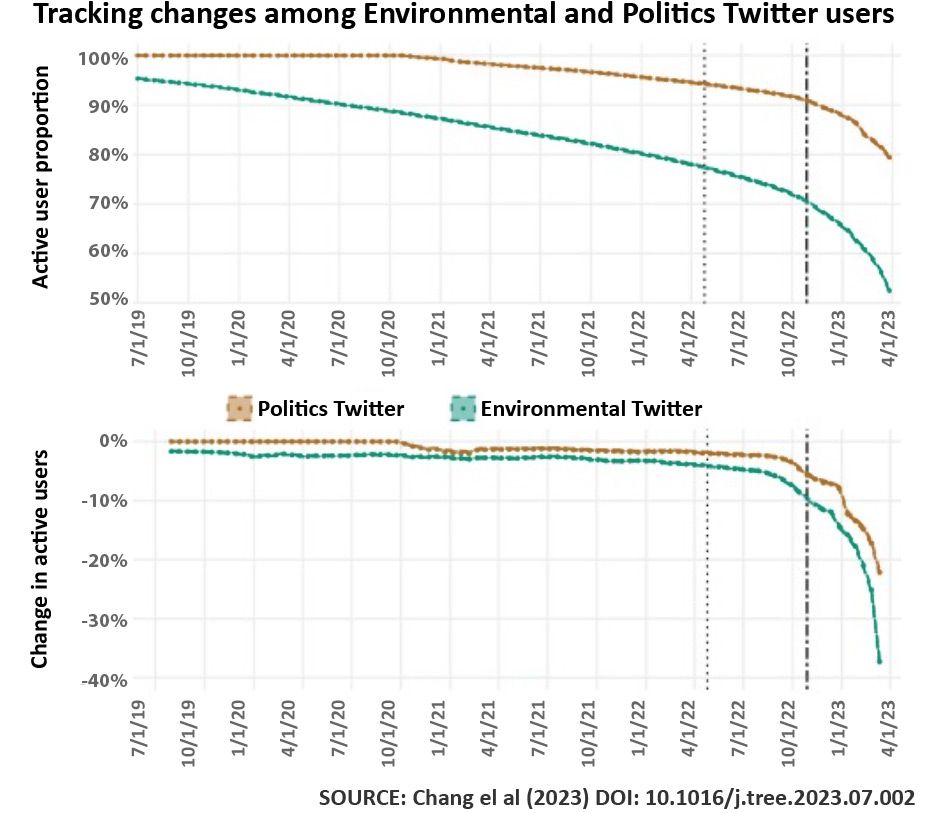This week, Elon Musk confirmed that the social media platform, X — formerly known as Twitter — plans to stop displaying news article headlines or text within links. Will this decision accelerate the abandonment of the platform by environmentalists?
The decline of “Environmental Twitter,” a segment of 380,000 users who frequently discussed climate change and biodiversity conservation, was documented in a study published last week in the journal “Trends in Ecology & Evolution.
That research, led by Charlotte Chang, found that a disproportionate share of “Environmental Twitter” became inactive after Musk bought the platform:
“By April 2023, only 52.5% of the Environmental Twitter users were still active while 79.4% of the Politics users were still active,” Chang and colleagues write. “Comparing the rates of change pre- and post-takeover, we saw that the magnitude of the changes were significantly larger after Musk’s takeover. Moreover, the decline in active users was larger for Environmental Twitter compared with Politics Twitter.”
“The rapid decline in active users raises alarm bells and signifies a substantial loss for the conservation community, which includes ecologists, social scientists, conservation practitioners, policy makers, and other interest groups. For advocates and researchers that rely heavily on Twitter, the exodus of environmental users on Twitter is an existential threat to the primary mode used to disseminate information, mobilize diverse audiences, and analyze its data to track contemporary debates and sentiments around the world’s twin crises of biodiversity loss and climate change.”

In a press release from Pomona College, the authors observed that no viable substitute for “Environmental Twitter” has emerged so far.
“Twitter has been the dominant social media platform for diverse environmental interests to communicate and organize around advocacy goals, exchange ideas and research and new opportunities for collaboration,” the authors wrote. Currently there is nothing on the horizon to replace it, putting at risk robust idea-sharing on topics such as extreme weather disaster responses, preservation of biodiversity and climate change.”
How does this pertain to Mongabay? We’ll be joining the exodus shortly: We plan to cease posting on our English-language X/Twitter account in the next few days.

